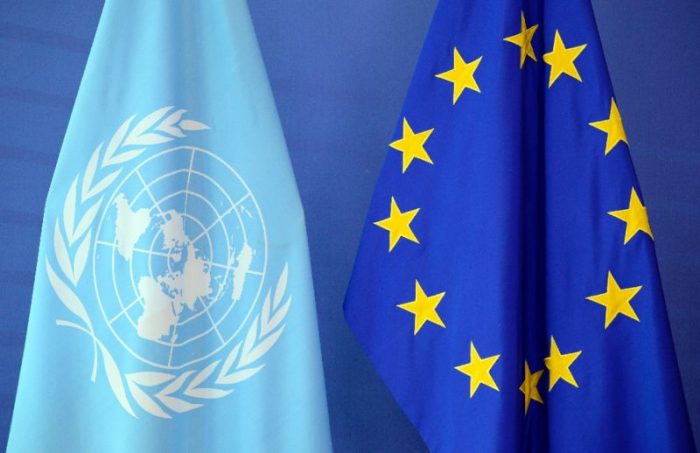Brève
Que l’Europe « parle d’une seule voix » et pèse ainsi de tout son poids sur la scène internationale serait, certes, souhaitable. Mais cela ne se produira pas, comme d’un coup de baguette magique, en fusionnant les sièges des pays membres au Conseil de sécurité des Nations unies. Bien au contraire, un tel siège unique ne ferait qu’affaiblir l’influence de l’Europe dans les affaires du monde.
S’il n’y a pas de position commune de l’UE, l’Europe n’aura pas de voix du tout
Pour parvenir à une décision dans le domaine ultrasensible de la politique étrangère et de sécurité, la règle reste l’unanimité. Or, sur les questions géopolitiques majeures, le Proche-Orient, la Russie ou la Chine, les Etats membres sont divisés. Par conséquent, avec un seul siège commun, l’Europe serait, la plupart du temps, réduite au silence.

S’il y a une position commune de l’UE, l’Europe aura moins de voix au vote
L’ONU est une organisation intergouvernementale, où un siège égale une voix. En ce moment il y a cinq pays membres de l’UE au Conseil de sécurité (deux membres permanents avec droit de veto, l’Angleterre et la France, plus trois non-permanents sur base de rotation). En cas de position commune, cela fait cinq voix au lieu d'un seul.
La situation actuelle offre le meilleur des deux mondes
Le traité de l’UE stipule déjà que les Etats membres défendent les positions de l’UE au Conseil de sécurité. Si une position commune existe, comme sur le climat par exemple, elles est donc défendue par un nombre maximum de votes et présentée au nom de l’UE par la Haute représentante. Par contre, en cas de désaccord au sein de l’UE, les Européens au Conseil de sécurité gardent leur liberté d’agir. C’est ainsi que la France a pu s’opposer à la guerre en Irak en 2003.
Non-sens juridique, politique, démocratique
En vertu de la Charte de l’ONU, seuls des Etats peuvent être des membres ; en vertu du traité de l’UE, la politique étrangère commune n’affecte pas l'appartenance d'un État membre au Conseil de sécurité. En termes strictement juridiques, il n’y a pas lieu de débattre.
Sur le plan politique, le siège commun de l’UE préconisé par des pays européens est aussi un moyen de priver leurs partenaires/concurrents, en particulier la France membre permanent, de leurs privilèges. Ce qui ne serait pas sans compromettre l’équilibre franco-allemand et, du coup, mettre à mal la stabilité interne de l’Europe dans son ensemble.
Surtout, un siège commun au Conseil de sécurité de l’ONU – souvent prôné en parallèle avec le passage au vote à la majorité qualifiée – enlèverait aux citoyens européens un élément crucial de leur souveraineté. Leurs préoccupations spécifiques, propres à chaque pays (comme les inquiétudes baltes par rapport à la Russie ou l’ambition française de l’autonomie stratégique) risqueraient d'être ignorées et/ou rejetées.
Lire la brève en anglais sur le site de The Rift, avec l'argumentaire opposé développé par Ophélie Omnes.
Pour une analyse plus approfondie du sujet: UNE SEULE VOIX, MAIS LAQUELLE? LA FRANCE DEVRAIT-ELLE CÉDER À L'UE SON SIÈGE AU CONSEIL DE SÉCURITÉ?




















